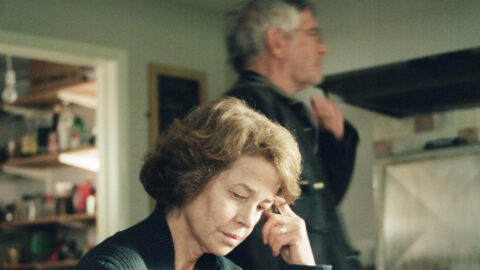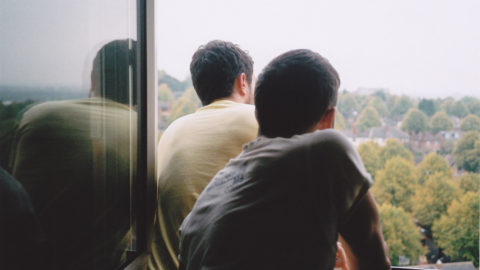By Michael Koresky in the November-December 2015 Issue
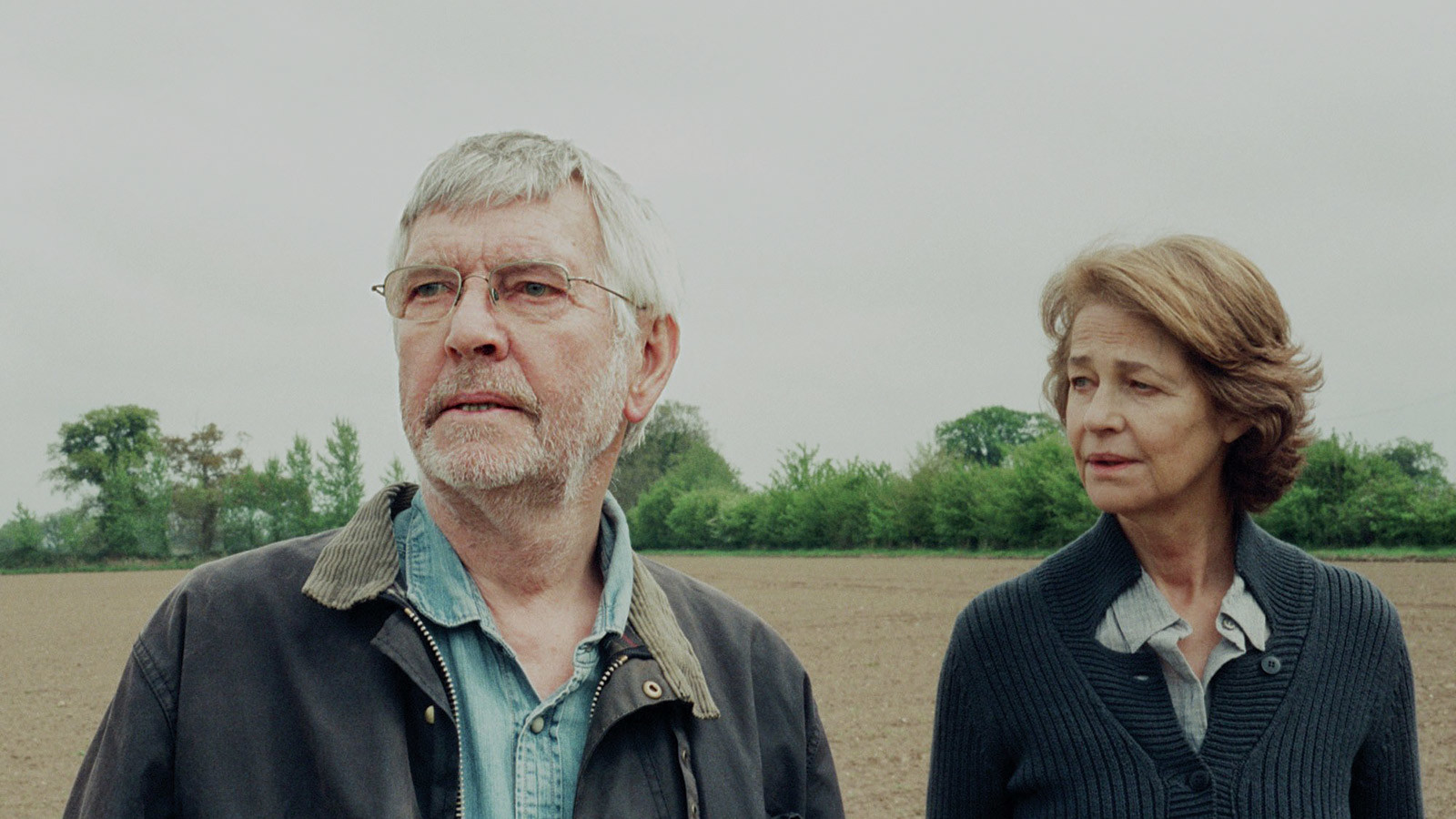
Review: 45 Years
Andrew Haigh, U.K., 2015
It only takes about two minutes of screen time for Andrew Haigh to establish the comfortable domestic home life of his main characters in 45 Years before he sets about disrupting it. A cozy gray sweater here, a well-cradled coffee cup there, a wife’s quick kiss to her husband’s forehead—Charlotte Rampling’s Kate and Tom Courtenay’s Geoff are enjoying an overcast morning in Norfolk surely much like any other over the course of their nearly half-century together. They are preparing for an overly elaborate 45th wedding anniversary party, discussing the possible music playlist (oldies, of course). Then the letter arrives: the body of Geoff’s former love, who died during a hiking accident in Switzerland way back in 1962 after disappearing into a crevasse, has finally been recovered. The news is swiftly troubling for each of them, but for different reasons: for Geoff it reminds him of a tragic loss he was clearly never able to mourn fully; for Kate it dredges up a terrible thought—that there was a woman her husband loved before her and potentially more than her, and that their entire relationship, however contented, is predicated on the untimely death of another.
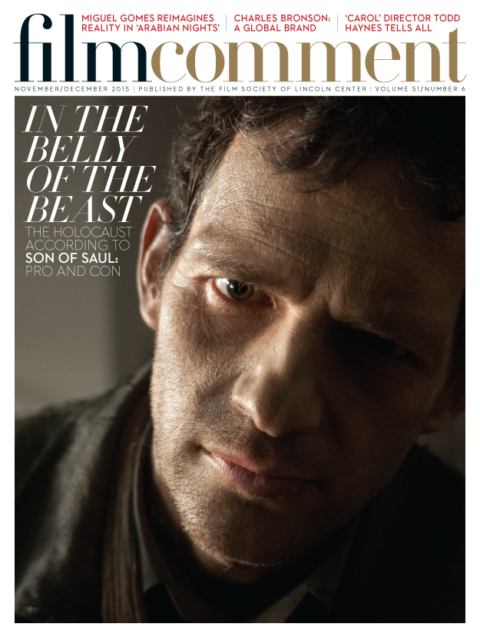
From the November-December 2015 Issue
Also in this issue
It’s a neat, if perhaps too tidy, metaphorical conceit—the past literally surfaces after years of dormancy—and one that makes the film feel very much like the adaptation of a short story (by David Constantine) that it is. As in his 2011 debut, Weekend, Haigh brings crystalline precision to every shot, although here he trades that feature’s more rough-and-tumble working-class Nottingham look for a series of higher-gloss art-film compositions that thankfully stop short of studied airlessness. Working with cinematographer Lol Crawley, Haigh zeroes in on every eyelid twitch and cheek-muscle contraction on Rampling’s reliably nuanced face without getting suffocatingly close; Courtenay, the less knowable of the two because of the screenplay’s increasing focus on Kate’s growing emotional estrangement, is more opaque, although the former Billy Liar is granted space for some lovely moments of unadorned vulnerability. At one tender point, when Geoff is unable to maintain an erection while the couple attempts a bout of makeup sex, Haigh ensures it’s neither humorous nor pitiful, just a momentary technical hitch. Throughout, the film similarly refuses to champion Kate’s perhaps overly anxious behavior (as a more one-sided women’s picture about unappreciated wives might), allowing us to simply observe as her mind grinds away behind the stoic facade.
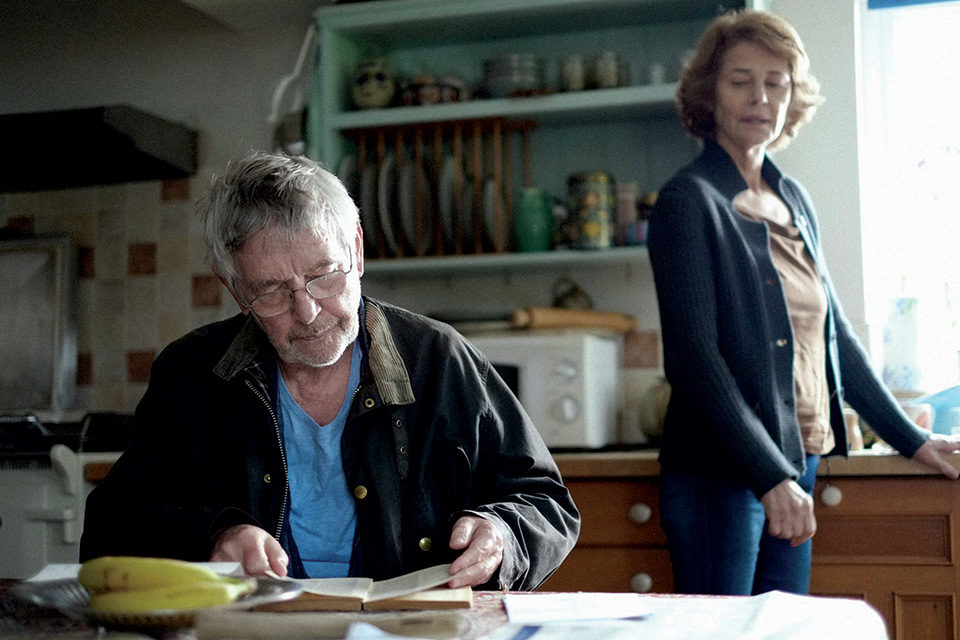
45 Years
The circumscribed plot of 45 Years necessitates that we believe that, over the course of less than a week, the sturdy edifice of a marriage between two intelligent, presumably faithful people could be undermined by the reverberations of one distant echo from the past. For some the very premise will seem unlikely, even preposterous; and as in Weekend, which followed two men from casual hookup to teary farewell over the course of two days, it’s possible that Haigh has compressed too much of his characters’ emotional transformation into too short a time frame. (The superb HBO series Looking, which he co-created and frequently directed, avoided this problem by allowing its central relationships to blossom over the course of many episodes and months in the lives of its characters.)
Yet the questions about the couple raised by the film make 45 Years more a provocation to its audience than just another collection of scenes from a marriage. It’s up to the viewer to decide whether this relationship is really in jeopardy at all or whether they will just go on for the remainders of their hopefully happy lives together plagued by the slightest twinge of doubt. 45 Years is ultimately not about the larger forces that tear us apart but the demons that lurk in the backs of our minds while we stay together. The elegant final shot, a single take that lets the Platters’ “Smoke Gets in Your Eyes” do most of the emotional heavy lifting until the brilliant final coup, will likely mean something different depending on who you talk to—which speaks not to Haigh’s need for artful ambiguity, but to his acknowledgment that human beings are so complicated and fragile that it’s downright scary.



